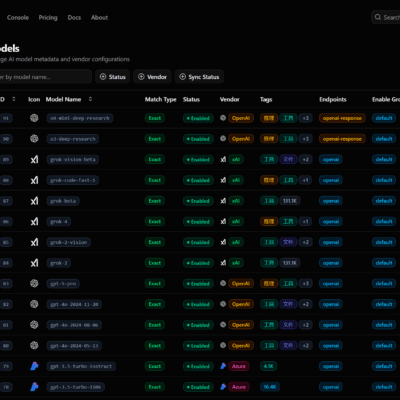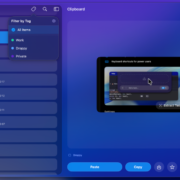Self-hosted SIM AI is a revolutionary open-source platform that democratizes AI agent development by providing a visual, drag-and-drop interface for building sophisticated AI workflows without extensive coding. Available at https://github.com/simstudioai/sim, this lightweight yet powerful platform enables developers, businesses, and AI enthusiasts to create complex multi-agent systems that can automate processes, handle data analysis, and integrate seamlessly with over 80 popular tools and services.
What sets SIM AI apart from traditional agent frameworks is its visual workflow editor that transforms complex AI development into an intuitive, Figma-like canvas experience. Unlike code-heavy alternatives like LangGraph or AutoGen, SIM provides a user-friendly environment where you can drag and drop AI agents, logic blocks, and integrations to create sophisticated workflows in minutes rather than hours. The platform’s unique approach combines the power of enterprise-grade AI capabilities with the simplicity of no-code development, making it accessible to both technical developers and business users.
The self-hosted nature ensures complete data privacy and eliminates ongoing subscription costs while providing unlimited customization potential. With support for multiple LLM providers including OpenAI, Anthropic, Google, and local models via Ollama, SIM empowers organizations to build AI solutions that align with their specific privacy requirements and technical infrastructure. The platform has gained significant traction with over 16,000 GitHub stars and active community contributions, reflecting its growing importance in the AI development ecosystem.
Key Features
– Visual Workflow Builder
- Intuitive drag-and-drop interface powered by ReactFlow for creating complex agent workflows
- Real-time collaboration capabilities allowing teams to work simultaneously on the same workflow
- Visual debugging tools with execution logs and flow visualization for easy troubleshooting
– Multi-LLM Support
- Connect to any LLM provider including OpenAI, Anthropic, Google Gemini, Groq, and Cerebras
- Local model support via Ollama integration for complete data privacy and offline operation
- Model-agnostic architecture allowing seamless switching between different AI providers
– Extensive Tool Integrations
- 80+ pre-built integrations including Gmail, Slack, Notion, GitHub, Airtable, and database connections
- Custom API integration capabilities for connecting proprietary systems
- MCP (Model Context Protocol) support for extending functionality with external services
– Advanced Agent Capabilities
- Multi-agent communication frameworks for collaborative AI systems
- Knowledge base integration with vector embeddings for semantic search and RAG pipelines
- Memory systems for maintaining context across conversations and workflow executions
– Flexible Deployment Options
- Multiple deployment methods: NPM package, Docker Compose, Dev Containers, or manual setup
- Cloud-hosted option available at sim.ai for instant access
- Self-hosted deployment for complete control and privacy compliance
– Smart Automation Features
- Conditional logic blocks, loops, and routing for complex decision-making workflows
- Scheduled job execution and webhook triggers for event-driven automation
- API deployment capabilities to integrate workflows into existing applications
– Team Collaboration
- Role-based permissions and workspace management
- Real-time editing with conflict resolution
- Shared workflow libraries and templates for organizational consistency
Installation Guide
Follow these step-by-step instructions to install Self-hosted SIM AI on your local machine or server:
1. Quick Start with NPM (Recommended for Beginners)
# Ensure Docker is installed and running
docker --version
# Install and start SIM with one command
npx simstudio
# Access the platform at http://localhost:30002. Docker Compose Deployment
# Clone the repository
git clone https://github.com/simstudioai/sim.git
cd sim
# Start all services
docker compose -f docker-compose.prod.yml up -d
# Access at http://localhost:30003. Local Models with Ollama (Privacy-First Option)
# For GPU systems (automatically downloads Gemma3:4b model)
docker compose -f docker-compose.ollama.yml --profile setup up -d
# For CPU-only systems
docker compose -f docker-compose.ollama.yml --profile cpu --profile setup up -d
# Add additional models
docker compose -f docker-compose.ollama.yml exec ollama ollama pull llama3.1:8b4. Manual Development Setup
# Install Bun runtime (if not already installed)
curl -fsSL https://bun.sh/install | bash
# Clone and install dependencies
git clone https://github.com/simstudioai/sim.git
cd sim
bun install
# Set up PostgreSQL with pgvector
docker run --name simstudio-db \
-e POSTGRES_PASSWORD=your_password \
-e POSTGRES_DB=simstudio \
-p 5432:5432 -d \
pgvector/pgvector:pg17
# Configure environment variables
cd apps/sim
cp .env.example .env
# Edit .env with your database URL and secrets
# Run database migrations
cd packages/db
cp .env.example .env
# Update with database URL
bunx drizzle-kit migrate --config=./drizzle.config.ts
# Start development servers
cd ../..
bun run dev:full5. Dev Container Setup (VS Code Users)
# Open project in VS Code with Remote-Containers extension
# Click "Reopen in Container" when prompted
# Run in terminal:
bun run dev:full
# or use the alias:
sim-start6. Initial Configuration
After installation, create your first account by visiting the web interface and clicking “Start now” to begin building your first AI workflow.
Use Cases
AI-Powered Customer Support Automation
Create sophisticated multi-agent support systems that can handle initial customer inquiries, search knowledge bases, escalate complex issues to human agents, and integrate with CRM systems. For example, build a workflow where Agent 1 classifies the inquiry type, Agent 2 searches relevant documentation, and Agent 3 generates personalized responses while logging everything to your support database.
Automated Content Creation Pipeline
Develop multi-stage content workflows where different AI agents specialize in research, writing, editing, and formatting. A practical implementation might include a Research Agent that gathers information from multiple sources, a Writer Agent that creates initial drafts, an Editor Agent that refines and fact-checks content, and a Formatter Agent that optimizes for different platforms (blog, social media, newsletters).
Data Processing and Business Intelligence
Build automated data analysis workflows that extract insights from multiple sources, generate reports, and trigger actions based on findings. Create systems where agents automatically process incoming data files, perform statistical analysis, generate visualizations, and send alerts when specific thresholds are met—all while integrating with existing business tools like Slack and databases.
Sales and Marketing Automation
Design intelligent lead qualification systems that automatically score prospects, personalize outreach messages, schedule follow-ups, and update CRM records. Implement workflows where AI agents analyze customer behavior, segment audiences, generate personalized email campaigns, and track engagement metrics across multiple channels.
Educational and Training Systems
Develop interactive learning platforms where AI agents provide personalized tutoring, generate practice questions, assess student performance, and adapt content difficulty based on individual progress. Create systems that can handle multiple learning styles, provide real-time feedback, and integrate with existing educational management systems.
Benefits and Considerations
The primary advantages of Self-hosted SIM AI center around cost efficiency and data sovereignty. Unlike cloud-based AI platforms that charge per API call or monthly subscriptions, SIM’s self-hosted model eliminates ongoing operational costs while providing unlimited usage scalability. Organizations can save thousands of dollars annually while maintaining complete control over their data, ensuring compliance with regulations like GDPR and HIPAA.
Privacy and security benefits are substantial, as all processing occurs within your own infrastructure without external data transmission. This is particularly valuable for enterprises handling sensitive information or operating in regulated industries. The platform’s support for local LLMs via Ollama means you can build sophisticated AI applications without any cloud dependencies whatsoever.
Development velocity represents another significant advantage, with SIM’s visual interface enabling rapid prototyping and deployment of complex AI workflows. Teams report reducing development time from weeks to hours when compared to traditional coding approaches. The platform’s extensive integration ecosystem means most common business tools connect seamlessly without custom development.
However, considerations include the technical requirements for self-hosting, including server management, database administration, and security maintenance responsibilities. Organizations need adequate technical resources or must invest in infrastructure management capabilities. Additionally, while the visual interface simplifies development, complex enterprise workflows may still require technical expertise to optimize performance and ensure reliability at scale.
Community support and active development provide confidence in long-term viability, with regular updates, bug fixes, and feature enhancements driven by both the core team and community contributions. The Apache 2.0 license ensures complete freedom to modify and extend the platform according to specific organizational needs.
Getting Started
Ready to revolutionize your AI development workflow? The Self-hosted SIM AI platform offers an unprecedented combination of power, flexibility, and ease of use that’s transforming how organizations build and deploy AI solutions. Whether you’re a startup looking to automate processes, an enterprise seeking data sovereignty, or a developer wanting to explore the cutting edge of AI agent technology, SIM provides the perfect foundation for your projects.
Take the first step today by visiting the GitHub repository at https://github.com/simstudioai/sim and exploring the comprehensive documentation at https://docs.sim.ai. Start with the simple NPM installation to get up and running in minutes, then experiment with the drag-and-drop interface to build your first AI workflow.
Join the thriving community of over 16,000 developers who have already starred the repository and are actively contributing to its growth. Whether you discover bugs, suggest features, contribute code, or share your innovative use cases, your participation helps make SIM AI even more powerful for everyone. The future of AI development is visual, collaborative, and open-source—and it starts with SIM AI.









